
By Michael Ashcraft and Charles Gardner –
By most accounts, the 2009 UK atheist ad campaign on buses was a flop. It misfired so badly, Christians contributed to fund it. The ads read: There’s probably no God. Now stop worrying and enjoy your life.
“The great irony of the Atheist Bus Campaign was that, by attempting to make people forget about God, it did precisely the opposite,” Justin Brierley observed in The Surprising Rebirth of Belief in God. It was so much so that Christian thinker Paul Woolley donated to it.
To the surprise of almost every pundit in 2024, atheism appears to be in retreat, and a new generation of seekers seem to be emerging out of the morass of postmodern meaninglessness with an openness to the old-fashioned gospel.
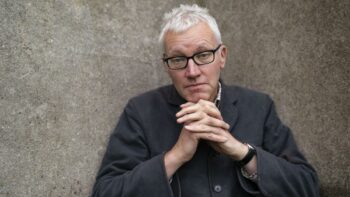
While mainline churches still report declining numbers and “nones’ increase in census data, church plants – especially Spirit-led ones – are bursting at the seams with people craving an authentic supernatural touch.
Historian Tom Holland, part of the rise of intellectuals now open to God, prefers traditional services but observes that Pentecostal churches are taking over in South America, Africa, Asia and even in the United Kingdom (but often aren’t counted in surveys because they’re off radar).
“There’s a church at the top of my road that’s always heaving,” Holland says on an LICC YouTube video. “The growth seems to be in churches that seem to take the supernatural seriously.”
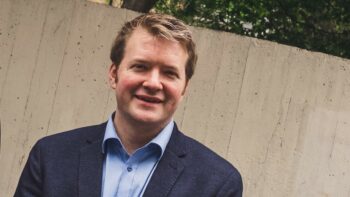
At the same time, the intelligentsia is softening its formerly anti-Christian rhetoric. As of 2021, Peter Boghossian of Portland State University was no longer a vociferous haranguer of Christians. The author of the 2013 book A Manuel for Creating Atheists now finds himself on the side of Christians in a new battle, the fight against wokeism taking over academia.
With its solid foundation on science and its promise of a bright future for humanity without superstition, atheism is failing. As it turns out, an empty universe leaves an empty heart.
“People need a story to live by, but the stories we have been telling ourselves in the last several decades have been growing increasingly thin and superficial,” Brierley says. “A plethora of thinkers have been reevaluating the Christian story and showing how it continues to undergird our most fundamental moral and cultural instincts.”
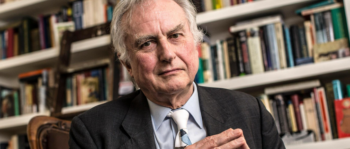
It was just 20 years ago that the “New Atheists” roared onto the scene. At its forefront, celebrity atheists, neuroscientist Sam Harris, philosopher Daniel Dennett, journalist Christopher Hitchens and biologist Richard Dawkins called themselves “The Four Horsemen of the Apocalypse,” a title irreverently quarried from the Book of Revelations. They threatened not the wrath of God but wrath against God.
Dawkins poured out sulfuric acid. “Mock Christians! Ridicule them in public!” he roared to 30,000 cheering atheists at the Reason Rally in 2012 on Washington D.C.’s National Mall.
The Four Horsemen brandished intimidating intellect and acerbic derision. They added their voice to the attacks brought by secularism, the “higher criticism” of Germany, the theory of evolution, and Marxist theory.
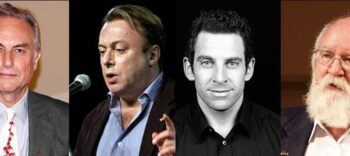
But Christianity proved resilient, and instead it is atheism that has waned. Free-thinker and skeptics conferences are dying out due to poor attendance and infighting. Sam Harris has called the scene “a train wreck.”
As G.K. Chesterton said over a century earlier: “Christianity has died many times and risen again, for it had a God who knew the way out of the grave.”
The Four Horsemen wrote best-selling books and tweeted constantly to snuff out faith. Their poison prompted thousands to abandon faith.
But from their fangs came the anti-venom. In response to the onslaught, Christian apologists doubled down on their work and struck a mother lode of reasons for faith that made sense and held sway.
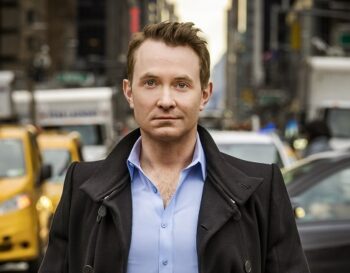
Peter Byrom is a case in point. He discovered doubt through Dawkins’ The God Delusion. But he had the intellectual integrity to continue researching. He looked into apologetics – and was startled by satisfying answers affirming the historic faith. The portrayal of Christians as superficial and simpletons just wasn’t true.
“Looking through the Dawkins and Hitchens’ work was when I started discovering Christian apologetics,” Byrom is quoted in Brierly’s book. “There was really good solid stuff there. I had to face up to the fact that all I was left with was not wanting it to be true.”
Similarly, noted UK journalist Douglas Murray, who is gay, has noted that “a number of highly intelligent friends and acquaintances had converted to Christianity in recent years,” Brierley’s book narrates.

There’s a distinct upturn of people looking for spiritual answers. In Doncaster in the UK, a class on Christianity with an emphasis on the Jewish feasts in primary school that has gone on for three decades is now for the first time turning up keen interest, not only from the students, but also from the teachers.
Dutch Christians of the Presence Revival Movement have hit the streets singing praise and worship in public in London, Birmingham, Manchester, Edinburgh, Cambridge and Cardiff. Live-streamed on YouTube, the events have touched a large audience.
In America, Sean Feucht leads similar events where praise is used to vanquish demons and stoke revival fire. When his guitar was stolen in Spokane, Washington, in June of 2023, the thief later came to services, asked for forgiveness, received the Lord, and got baptized.

United Revival Ministries stages marches with banners and worship in major American cities. After preaching, they perform baptisms and exorcisms unabashedly.
After revival broke out at Asbury University in 2023, it spread to other universities, to Maine, Minnesota and Michigan before jumping abroad to Israel, Mexico, New Zealand, Brazil, Australia, and Africa. People have demonstrated they are hungry for something real.
Europe has been christened “post-modern,” a moniker that means mostly people don’t believe in God anymore. But out of the ashes of unbelief, new faith is rising.
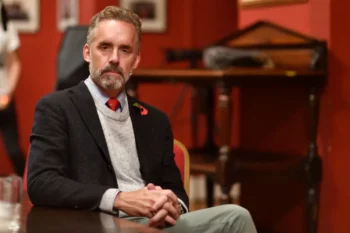
“Science can tell you how the universe arose but not why it is there,” Brierley says. “Science can tell you what you consist of but not what you are worth. Science can generate solutions to poverty but not the compassion to implement them. Science can make you money but not purchase you a meaningful existence.”
A study in Finland found that between 2011 and 2019, the number of young men (15 to 29 years old) attending churches had doubled. Until more data is compiled, it’s an isolated statistic.
But two words should leap out: Young and men. In the traditional explanation of trends, only the old go to church. The young embrace the cutting edge of science and trends and are unafraid to leave behind the old cloaks of their parents. But these churchgoers are young.
And they’re men. It’s not unfair to say women tend to be more responsive to the gospel than men. Even in the Bible, women lead the way for men to follow: God foretold Samson’s birth to Manoah’s wife before telling Manoah. It was two women who first witnessed evidence of Jesus’ resurrection.
But these are men; something is afoot among men.
Just look at Jordan Peterson. The Canadian psychologist has taken the world by storm with his book 12 Rules for Life. The New Yorker called him “one of the most influential and polarizing public intellectuals in the English-speaking world.”
Peterson courageously ranted about the “crisis of masculinity” in the West that resonated with millions of young men who are struggling to find their identity in a milieu that says manhood is toxic, oppressive and patriarchal. Brierley calls Peterson a father figure for hundreds of thousands.
At the same time, Peterson teaches Bible stories – profoundly and evocatively. Focused through the Jungian optic, Peterson’s Bible teachings are not your Grandpa’s theology. But they are revitalizing and making the Bible relevant to a generation that doesn’t know anything about the Bible.
According to Brierley, the Peterson phenomenon is indicative of the “new conversation about God.”
So what, ultimately, happened to the New Atheism? A few things.
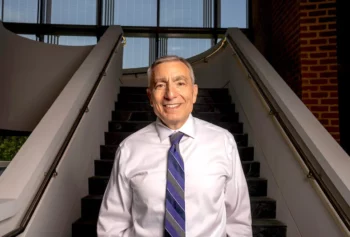
First, it was supposed to be founded on science. At the end of the day, science undermined atheism.
Atheism flouts the biblical creation narrative because of their faith in evolution. But after decades of fruitless research, science is showing that evolution could not have even gotten started – at the molecular level. How did the lipids, proteins, nucleic acids and carbohydrates all self-assemble to form the most primitive forms of life?
The task of spontaneously ordering the complexities of the DNA molecule has eluded scientists in a controlled environment of a lab (much less by accident in the uncontrolled environment of the planet). If chemists can’t observe the self-organization of biochemicals, then it’s not science. It’s merely speculation.
University of Rice chemist James Tour compares the self-ordering of molecules to all the information in the Library of Congress: Could all the words of all those books and the library’s filing system just come together all by itself?

“So the origin of first life is the ‘nail holding the coffin closed’ on the emergence of biological evolution,” Tour writes on his website. The theory is a non-starter.
Second, atheism lost a principal tenet that Christianity was evil, an enemy of science and responsible for the Dark Ages. If it weren’t for repressive monks, they argued, the glories of Classical Greeks and Romans would have proceeded straight flight to the Renaissance, the Age of Exploration and the Age of Science without layover.
Historian Tom Holland demolished this caricature, meme approach to history in his book Dominion.
Raised in the Anglican church, Tom lost faith because his Sunday school teacher couldn’t explain to him where dinosaurs were in the Bible. Little Tom loved dinosaurs.
He loved mythology too. The Greek gods were more exciting than the God of the Bible, he thought. And he loved the wars of antiquity, Greeks versus Persians, Romans versus Carthaginians.
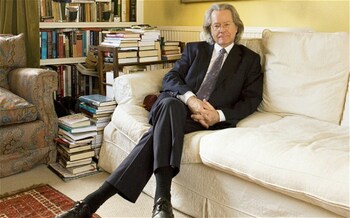
His love for the Greeks and Romans turned into his career. His first book Rubicon: The Last Years of the Roman Republic garnered widespread respect. He followed it up with Persian Fire about the Greco-Persian wars.
Next came the emergence and explosion of Islam In the Shadow of the Sword. The book controversially demonstrated that tenets of Muslims – such as the biography of Mohammad and origins of Mecca – are more fiction than fact.
Holland stuck to facts and it didn’t matter if he offended Muslims. When he tackled the emergence of Christianity in Dominion, he found himself taking on a new adversary, atheists with their cherished Christian-bashing.
After submerging himself in Greek and Roman culture, he had an epiphany: the classical civilizations reveled in slaughter and slavery. He had learned as a kid that the values of Western Civilization emanated primarily from Greco-Roman origins. But here was Julius Caesar killing a million Gauls and leading another million Gauls into slavery – and he was celebrated. Nobody objected. Genocide and slavery, in antiquity, were the proper order of things, the right of the strong over the weak.
Holland, who was a liberal secular agnostic, felt suddenly alien to their values. As he was sifted painstakingly through the annals of antiquity, Holland slowly realized his values derived from an unexpected source: They came from Christianity.
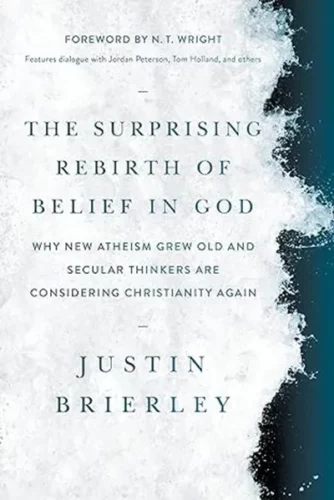 Only in Christianity, did the man who died the horrid death of a slave get enshrined as its maximum icon. Paul declared, “There is no Jew or Greek, slave or free, male and female; you are all one in Christ.” (Gal. 3:28). In Christianity alone, dignity and worth was given to the lower classes and to slaves. Barbarians deserved the love of Christ, not conquest by Caesar.
Only in Christianity, did the man who died the horrid death of a slave get enshrined as its maximum icon. Paul declared, “There is no Jew or Greek, slave or free, male and female; you are all one in Christ.” (Gal. 3:28). In Christianity alone, dignity and worth was given to the lower classes and to slaves. Barbarians deserved the love of Christ, not conquest by Caesar.
Out of Christianity, human rights were born and spread to the entire world. Christianity influenced and stabilized the family, government, and science through its values.
“Dominion was an attempt to trace the thread of my liberal humanist values through the labyrinth, and ultimately it leads back to Christianity,” he says in a debate against atheist philosopher A.C. Grayling. “Almost all of the essentials of our Western society are so saturated with Christian assumptions that it is impossible to remove ourselves from them.”
So atheism lost its foundation of science and its Christianity-bashing myth. The third strike against the New Atheism was infighting.
When they dismissed the Bible’s morality, what morality would take its place? The scientists thought science would be its only value. But the progressive left pushed for feminism, LGBTQ and Marxism.
At the 2011 World Atheist Convention, Rebecca Watson, found of the website Skepchik, in her speech blasted the sexualization of women in the atheist online movement. That very night, an atheist invited her back to his room while they rode in an elevator (the incident was termed Elevatorgate).
When she related her horror story on a YouTube video, Dawkins mocked her brutally. He was thinking it was petty, especially when compared to female circumcision and male dominance in (another) religion.

Dawkins’ tone-deaf sarcasm faced a harsh blowback in the atheist community. But then Carl Benjamin doubled down with even more offensive anti-feminism at the 2017 MythCon.
The disagreements only worsened after Elevatorgate.
How could atheism offer a united front against faith when it seemed to be dividing and fracturing? The trouble is actually simple: If Christianity and its morality were to be dismissed, what values and ethics would take its place?
Atheists say that conscience is an evolved feature and right and wrong is obvious. But one atheist thinks sleeping around is perfectly fine, and another gets offended if propositioned. Atheists knew what they were against, but they didn’t know what they were in favor of – and no framework for formulating values was agreed upon.
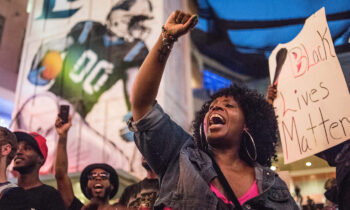
To fill the moral vacuum after feminism, race and transgenderism queued up to receive adoption of the so-called “Atheism+.” Especially, transgenderism was going to be a hard sell – for a movement that was based on science.
UK YouTuber atheist Stephen Woodford had posted the scientific opinion that transgender athletes had an unfair advantage in female sports that got him denounced by the Atheist Community of Austin after appearing on The Atheist Experience in Austin, Texas.
When Dawkins sounded off against transgenderism, he was stripped of his 1996 Humanist of the Year award by the American Humanist Association.
“The atheist community has splintered into a million shards,” writes the blogger behind Atheism and the City. “There are atheist feminists and atheist anti-feminists, social just warrior atheists and anti-social justice warrior atheists, pro-PC atheists and anti-PC atheists, pro-Trump atheist and anti-pro-Trump atheists. Atheists are split over gamergate, elevatorgate, whether we should organize, or whether we should even call ourselves atheists at all.”
John Lennon sang about the transition to societal unbelief in the atheist anthem “Imagine,” but the expected rationalist utopia never materialized.
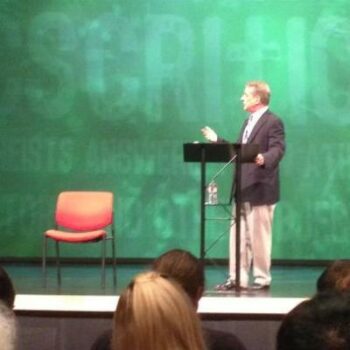
So what happened to the Four Horsemen of the New Atheism? Daniel Dennett died on April 19. Christopher Hitches succumbed to cancer some time after losing a debate to his brother about the existence of God. Sam Harris argues for a spirituality via psychedelics. Richard Dawkins ran away from serious Christian debaters.
When William Craig Lane, a formidable Christian apologist, offered to debate Dawkins, the normally flamboyant and bombastic atheist dodged it in 2011. Organizers at the Sheldonian Theater of Oxford place an empty chair to represent Dawkins’ absence. The empty chair spoke volumes. The atheists alleged an empty heavens; but it was they who did not show up.
These trend towards a new openness to Christianity, just beginning to appear, has yet to manifest in census data.
“I’m just seeing the signs of the turning of the tide, not a sort of tidal wave of faith,” Brierley says in a Catholic Truth Society interview on YouTube. “We may see it downstream. I see the secular thinkers as the first fruits of this renewed interest in God and how they’ve been a gateway drug to people embracing Christianity.”
To learn more about a personal relationship with Jesus, click here.
Related content: Stanford Neuroscientist Andrew Huberman confesses faith, Madalyn Murray O’Hair falls as atheist firebrand,
About these writer: Michael Ashcraft reported from Los Angeles where he pastors a church in the San Fernando Valley. Charles Gardener reported from the UK.



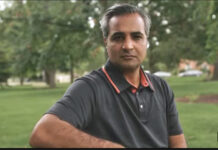
[…] Atheistic science seems to be going the way of communism, dead but affirmed by the American university. For about 100 years, science has attempted to tear down Christianity. But Christianity remains standing, and the gates of hell shall not prevail against it. […]
[…] But secularists went so far as to say the historic ruling placed the U.S. on the vanguard of a new morality with the “triumph of rationalism over superstition.” (Read related: Atheism is dying.) […]
Do you see Christianiity making a comeback of is this excessive optimism?
The Word probably , you think that it is likely to be true, although you are not sure. .
.
So we need to understand how such people deceive the world
So the Truth remains no matter what you do.
God is on the move. Amen
[…] said. “My resources are coming from somewhere else and someone else now.” He’s part of a revival among intellectuals and cultural icons in Western […]
God will always prevail!!

Comments are closed.